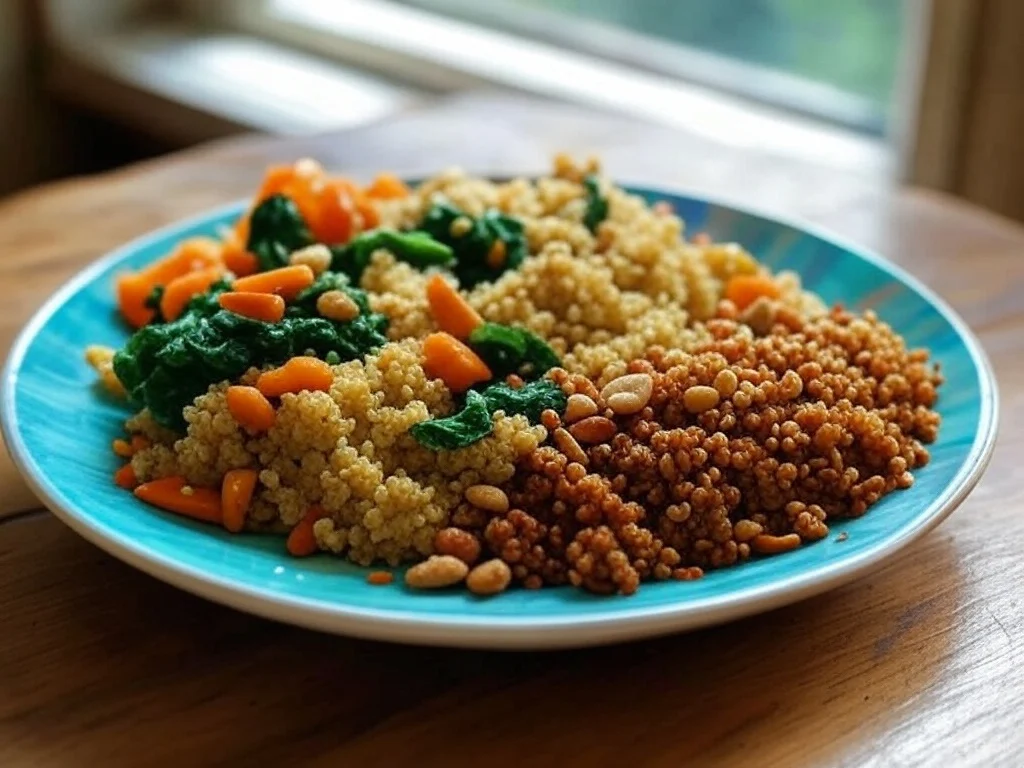Inflammatory diseases, such as rheumatoid arthritis, inflammatory bowel disease (IBD), and even cardiovascular conditions, are on the rise globally. Chronic inflammation, often fueled by poor lifestyle choices, plays a central role in these conditions. However, emerging research suggests that a diet rich in fiber and fermented foods may help combat inflammation, potentially keeping these diseases at bay. Let’s explore how these dietary choices can support your health and why they’re worth incorporating into your daily routine.
The Inflammation Epidemic
Inflammation is the body’s natural response to injury or infection, but when it becomes chronic, it can wreak havoc. Modern diets high in processed foods, sugar, and unhealthy fats often trigger this persistent inflammation. Over time, this can damage tissues, contribute to insulin resistance, and increase the risk of diseases like type 2 diabetes, heart disease, and autoimmune disorders. The gut, often called the body’s “second brain,” plays a pivotal role in regulating inflammation. An imbalanced gut microbiome—where harmful bacteria outnumber beneficial ones—can lead to a leaky gut, allowing toxins to enter the bloodstream and spark systemic inflammation.
Tip: See our weight loss section here for supplements to help!
Fiber: The Gut’s Best Friend
Dietary fiber, found in whole grains, fruits, vegetables, legumes, and nuts, is a powerhouse for gut health. Unlike other nutrients, fiber isn’t digested by the body. Instead, it passes through the digestive tract, feeding the beneficial bacteria in your gut. These bacteria ferment the fiber, producing short-chain fatty acids (SCFAs) like butyrate, which have potent anti-inflammatory effects. Butyrate, for instance, strengthens the gut lining, reducing the likelihood of a leaky gut and the inflammation that follows.
A 2021 study published in Cell found that diets high in fiber significantly reduced inflammation markers in participants with IBD. The researchers noted that fiber increased the diversity of gut microbiota, which is crucial for a healthy immune response. Fiber also helps regulate blood sugar and cholesterol levels, both of which are linked to inflammation. For example, soluble fiber in oats and beans slows sugar absorption, preventing the spikes that can trigger inflammatory pathways.
The average adult should aim for 25–30 grams of fiber daily, but most people fall short, consuming less than half that amount. Simple swaps can help: choose whole-grain bread over white, snack on berries instead of chips, or add a handful of chickpeas to your salad. These small changes can have a big impact on your gut health and inflammation levels.
Fermented Foods: Nature’s Probiotics
Fermented foods like yogurt, kefir, sauerkraut, kimchi, miso, and kombucha are rich in probiotics—live beneficial bacteria that support gut health. These foods have been staples in traditional diets for centuries, and modern science is catching up to their benefits. Probiotics help balance the gut microbiome, crowding out harmful bacteria and reducing inflammation. They also enhance the production of anti-inflammatory compounds, such as SCFAs, and improve the gut barrier function.
A 2022 study in Nature Communications found that participants who consumed fermented foods daily for 10 weeks had lower levels of inflammatory markers, including C-reactive protein (CRP), a key indicator of systemic inflammation. The study also noted improvements in immune function, suggesting that fermented foods could help prevent autoimmune diseases. For instance, the lactic acid bacteria in yogurt and kimchi have been shown to reduce pro-inflammatory cytokines, which are often elevated in conditions like rheumatoid arthritis.
Incorporating fermented foods into your diet is easier than you might think. Add a dollop of plain yogurt to your breakfast, enjoy a side of sauerkraut with dinner, or sip on kombucha as a refreshing drink. If you’re new to fermented foods, start small to avoid digestive discomfort, as your gut microbiome adjusts to the influx of probiotics.
Synergy of Fiber and Fermented Foods
The magic happens when you combine fiber and fermented foods. Fiber acts as a prebiotic, providing fuel for the probiotics in fermented foods to thrive. This synergy creates a thriving gut ecosystem that can better combat inflammation. For example, eating a high-fiber meal like a lentil salad alongside a serving of kimchi ensures that your gut bacteria have both the food they need (fiber) and the reinforcements (probiotics) to flourish.
Tip: See our weight loss section here for supplements to help!
Practical Tips for a Gut-Healthy Diet
Transitioning to a diet high in fiber and fermented foods doesn’t have to be overwhelming. Start by adding one high-fiber food to each meal—think avocado on toast, a side of steamed broccoli, or a handful of almonds as a snack. Gradually introduce fermented foods, aiming for a small serving daily. If you’re prone to bloating, increase your fiber intake slowly and drink plenty of water to aid digestion.
It’s also important to limit inflammatory foods, such as sugary drinks, processed meats, and refined carbs, which can counteract the benefits of fiber and probiotics. Focus on whole, unprocessed foods to maximize the anti-inflammatory effects.
A Long-Term Strategy for Health
While diet alone isn’t a cure for inflammatory diseases, it’s a powerful tool for prevention and management. A diet rich in fiber and fermented foods can reduce chronic inflammation, support a healthy gut microbiome, and lower the risk of diseases that plague modern society. Consistency is key—making these foods a regular part of your diet can lead to lasting benefits for your overall health.
As always, if you have a chronic condition or dietary concerns, consult a healthcare professional or nutritionist to tailor these recommendations to your needs. By nourishing your gut, you’re taking a proactive step toward keeping inflammation—and its associated diseases—at bay.
Tip: See our weight loss section here for supplements to help!



